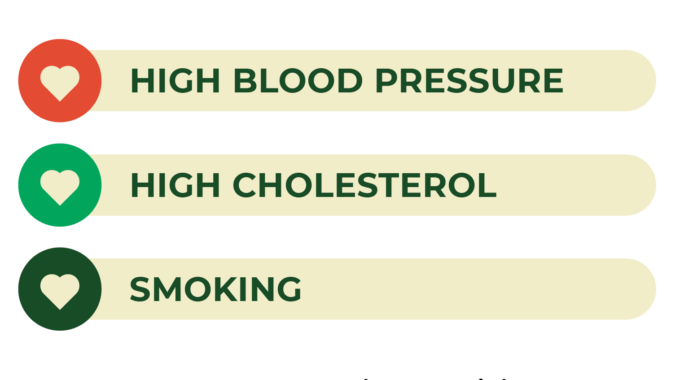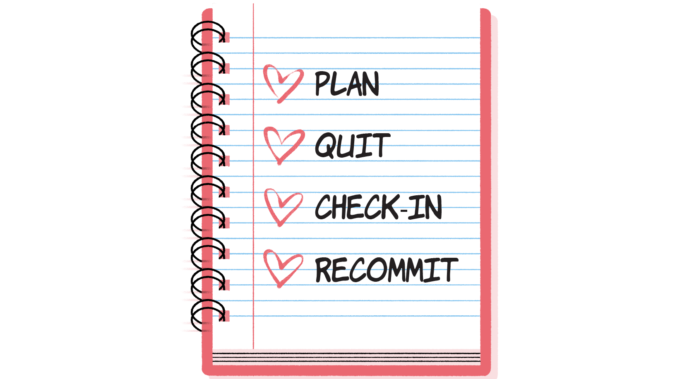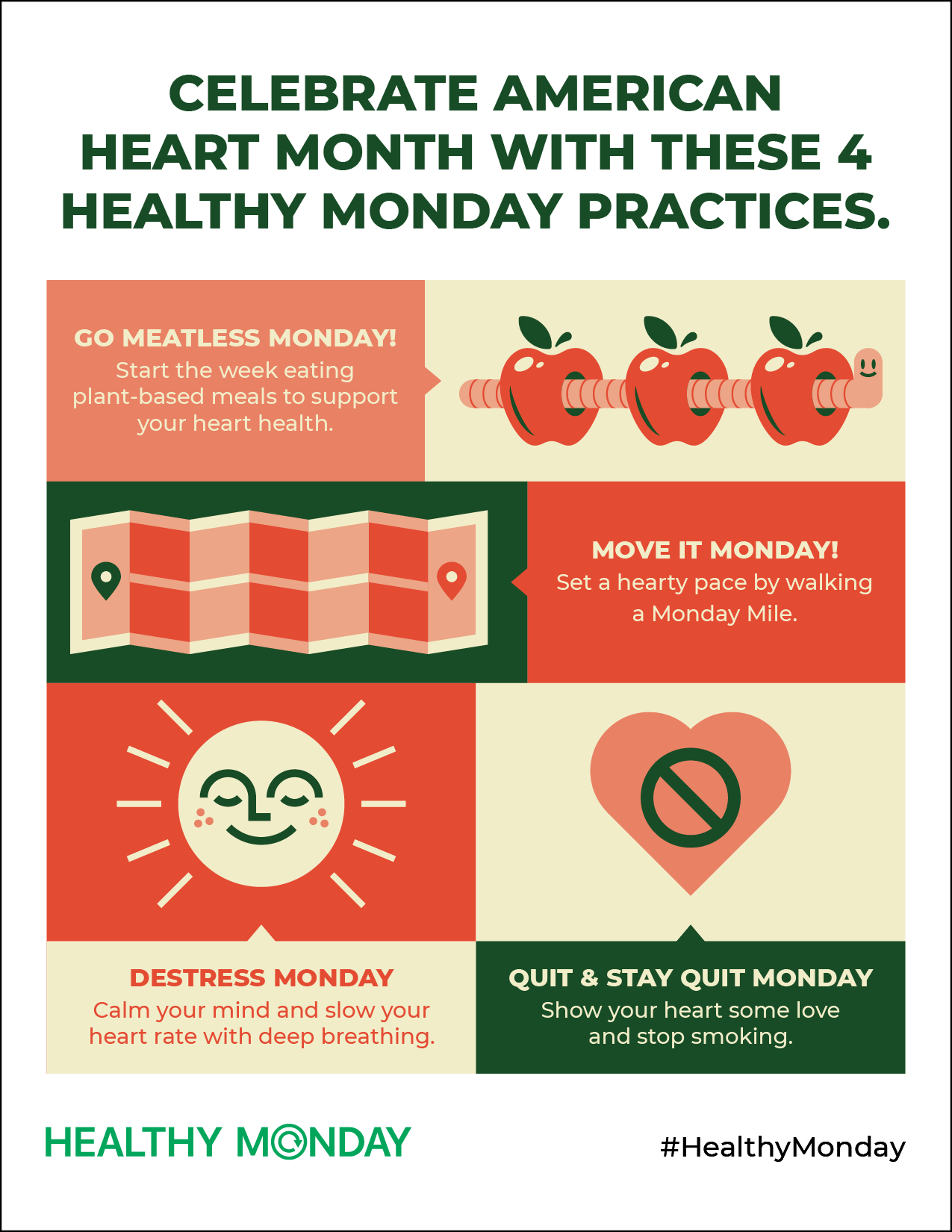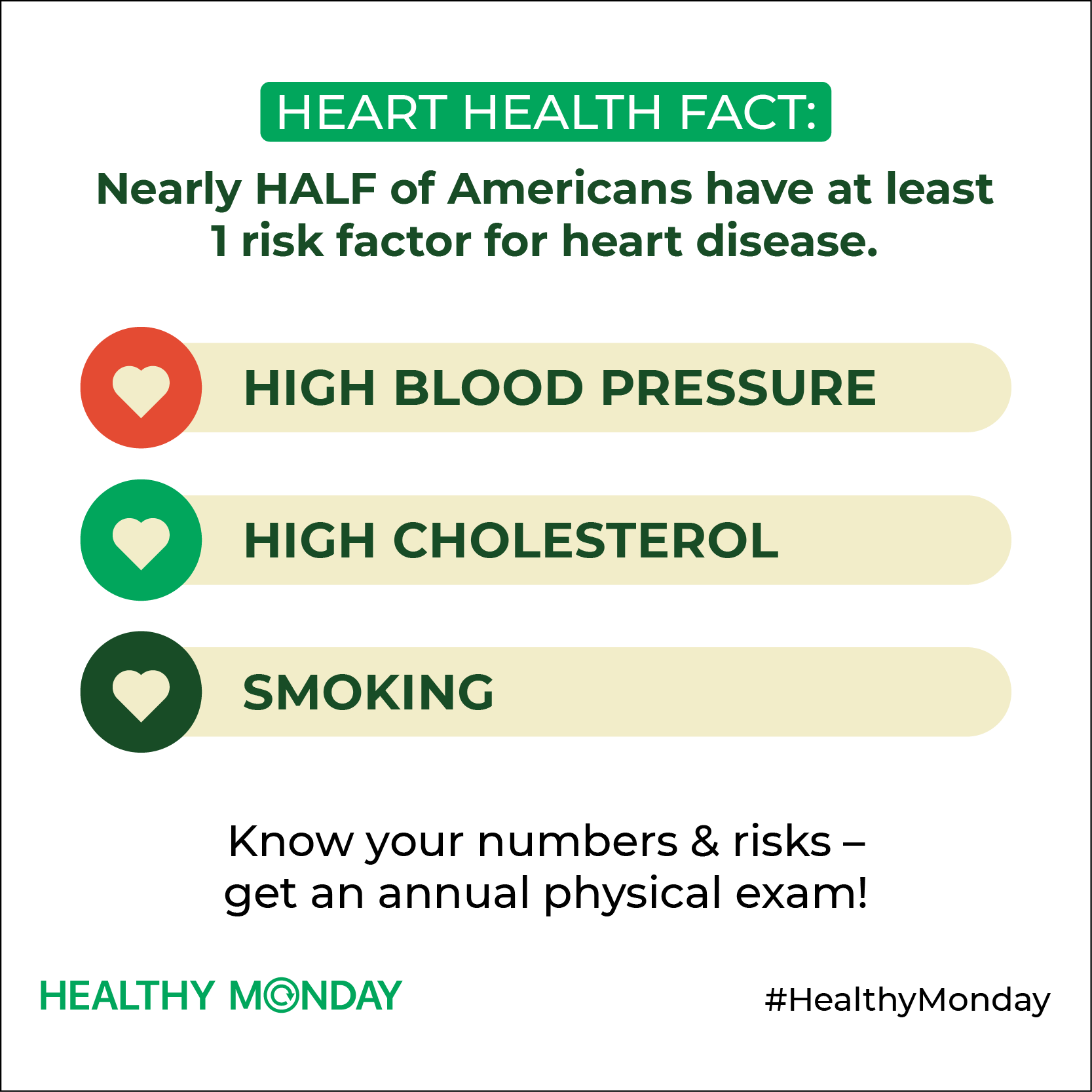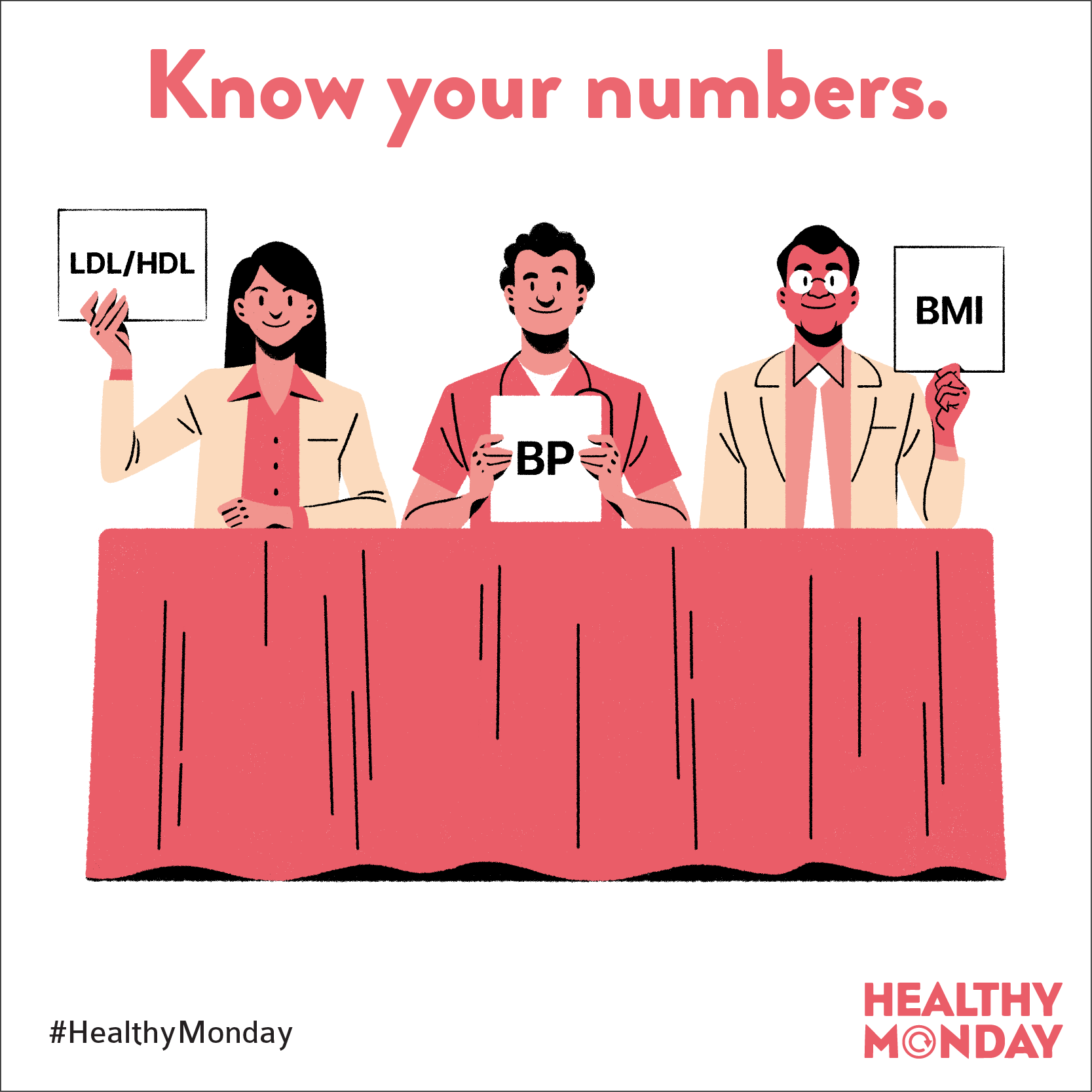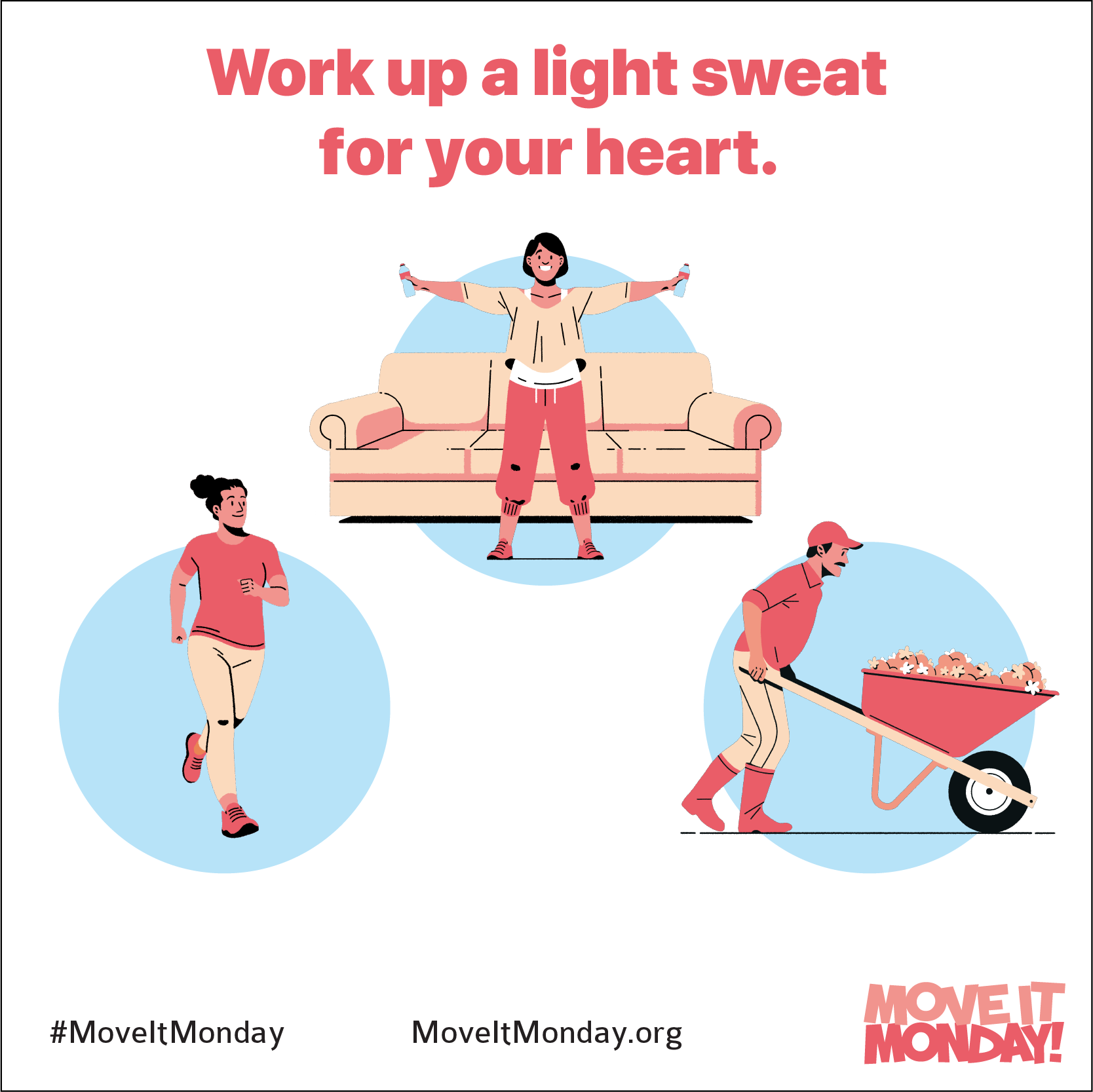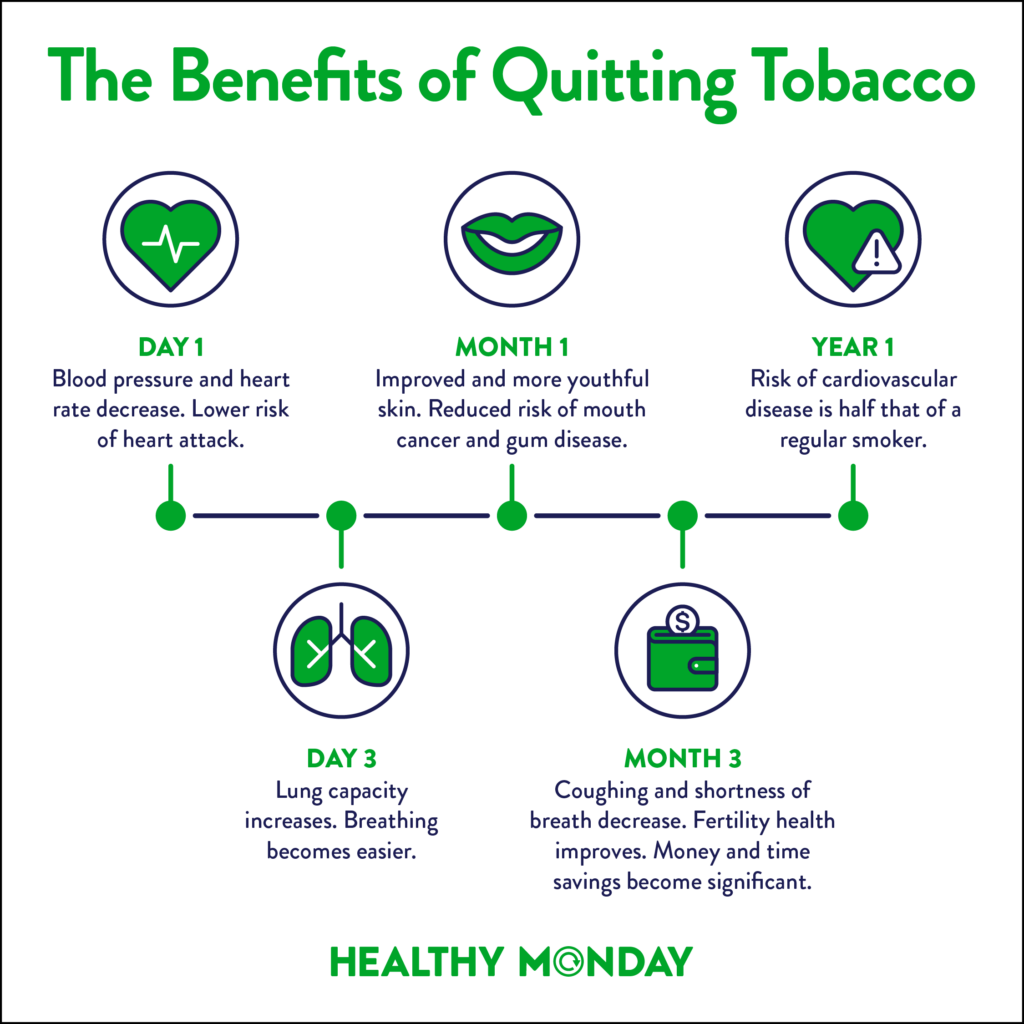Healthy Monday for Heart Health
Heart disease (also referred to as cardiovascular disease) is a term that covers a number of health conditions affecting the heart, such as coronary artery disease, heart rhythm problems (arrhythmias), and congenital heart defects.
Heart disease is the leading cause of death in the United States for both men and women, with half of all Americans (47%) qualifying for at least one of the three key risk factors (high blood pressure, high cholesterol, smoking cigarettes).
The good news is that you can manage these risk factors by making some small changes to your weekly routine. By recommitting to simple health behaviors every Monday—moving more, stressing less, eating well, and quitting smoking—you can dramatically improve your health and reduce your chances of developing cardiovascular disease.
Download the Full Healthy Monday for Heart Health Package

Heart Health
Healthy Behaviors Can Help You Reduce Your Risk of Heart Disease
4 Facts to Know About Heart Disease:
- Heart disease is the leading cause of death in the US for both men and women across nearly all racial and ethnic groups
- About half of all Americans (47%) have at least 1 of the 3 risk factors for heart disease (high blood pressure, high cholesterol and smoking).
- Heart disease kills about 695,000 Americans each year
- From 2019 – 2020, costs related to heart disease in the United States reached $252.2 billion.
Your risk of heart disease can be divided into three categories:
1. Health Conditions:
- High blood pressure
- High blood cholesterol levels
- Diabetes
- Obesity
2. Lifestyle Behaviors:
- Eating an unhealthy diet high in saturated fats, trans fats, and cholesterol
- Being physically inactive
- Smoking
- Drinking too much alcohol
3. Demographic Features:
- Age
- Race
- Genetics
- Family History
Healthy Monday behaviors that may help reduce your risk of heart disease
1. Know your numbers and risk factors
- Get a yearly physical examination and have your blood pressure, cholesterol and blood glucose level checked regularly (document these numbers for later reference).
- Starting at age 45, get your cardiovascular risk score if you are at risk for heart disease.
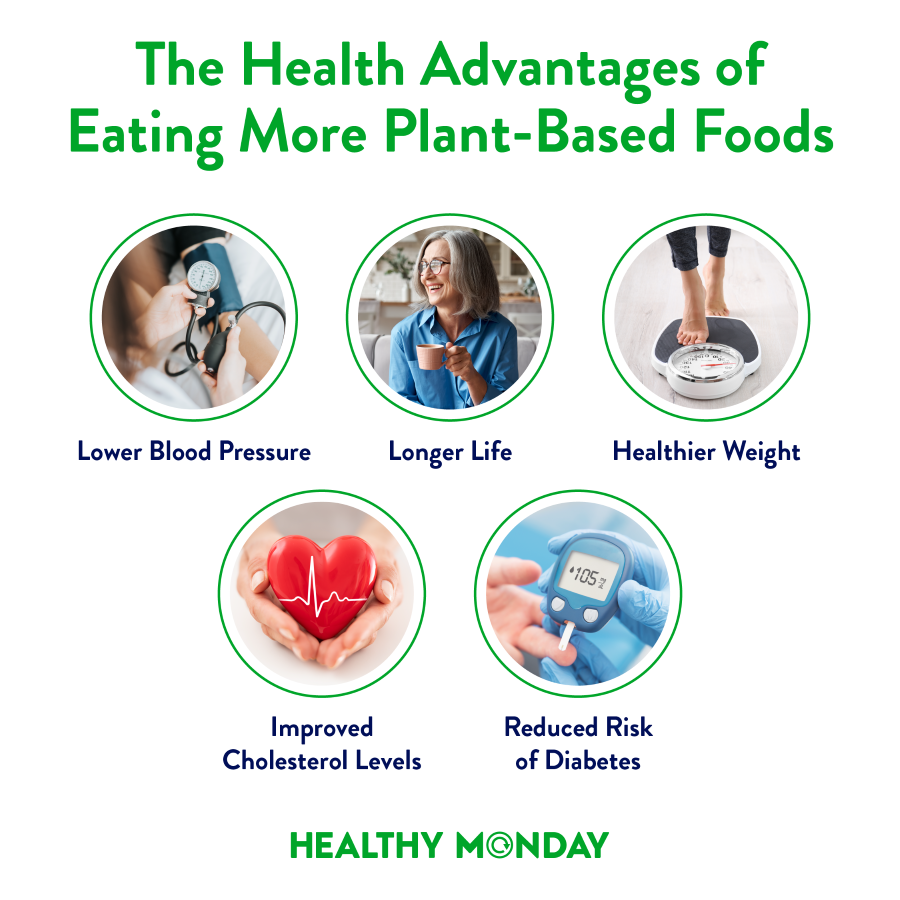 2. Eat a healthy diet, focused on less meat and more fruits, vegetables, and legumes
2. Eat a healthy diet, focused on less meat and more fruits, vegetables, and legumes
- Reduce consumption of high-sugar, high-calorie junk foods such as potato chips, cookies, candy, and sugar-sweetened beverages. Substitute red meat with nuts, whole grains, beans, peas, lentils, legumes and other meat alternatives like tofu, and tempeh.
- Use “Meatless Monday” as an opportunity replace animal proteins — especially red meat— with plant-based alternatives such as beans, lentils, nuts, tofu, and plant-based meat products.
3. Be and Stay Active
- Add activity into your daily routine — Move it Monday by parking a little farther from the store, suggesting a “walking date, or trading the elevator for the stairs. Every bit counts.
- Stay active by incorporating a Monday Mile walk into your weekly routine.
4. Quit Smoking
- Make a quit plan and prepare to stop smoking on Monday
- Set up a support team to help keep you accountable and on track
5. Lower Stress Levels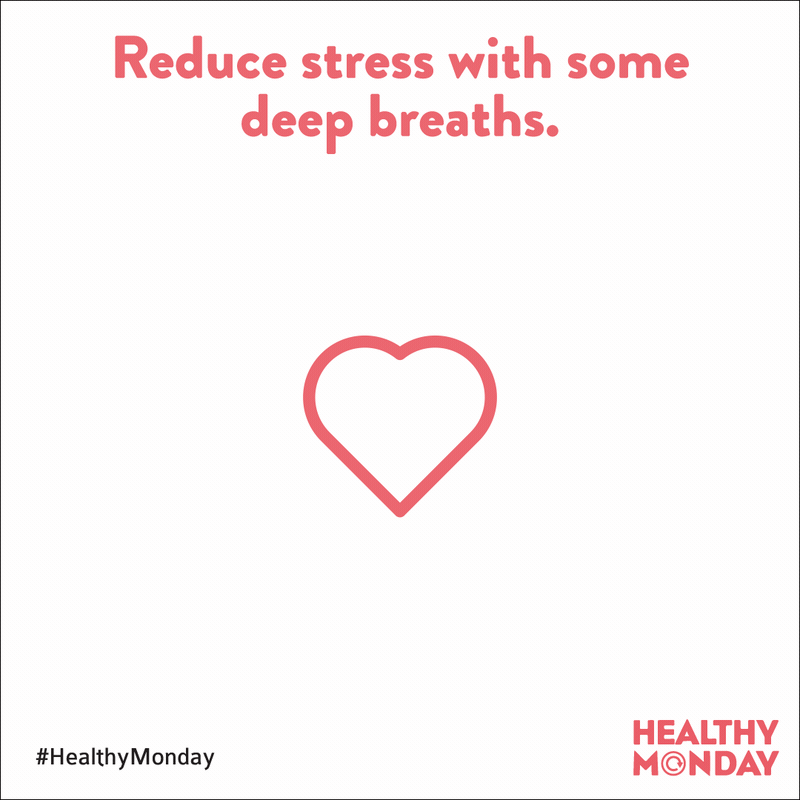
- Engage in deep breathing techniques for relaxation and reduced tension
- Relax and engage in light exercise with yoga.
Additional risk factors for heart disease include high blood pressure, obesity, overconsumption of alcohol, and genetics.
Better Understand YOUR Heart Health with these Free Resources
- ASCVD Risk Calculator
- Heart Attack and Stroke Symptoms
- How to Manage Stress to Control High Blood Pressure
- For more Heart Health tips see CDC’s Prevent Heart Disease page
